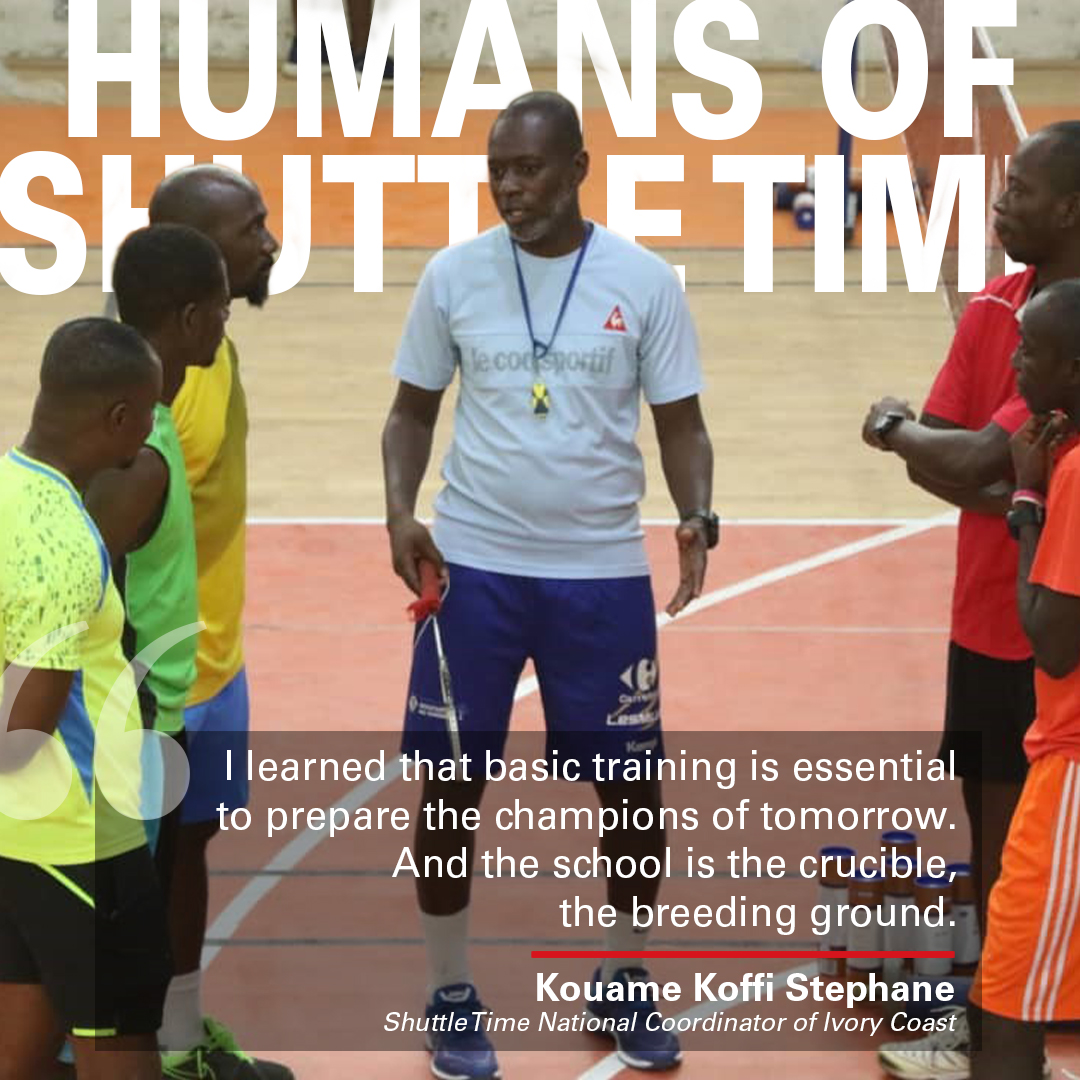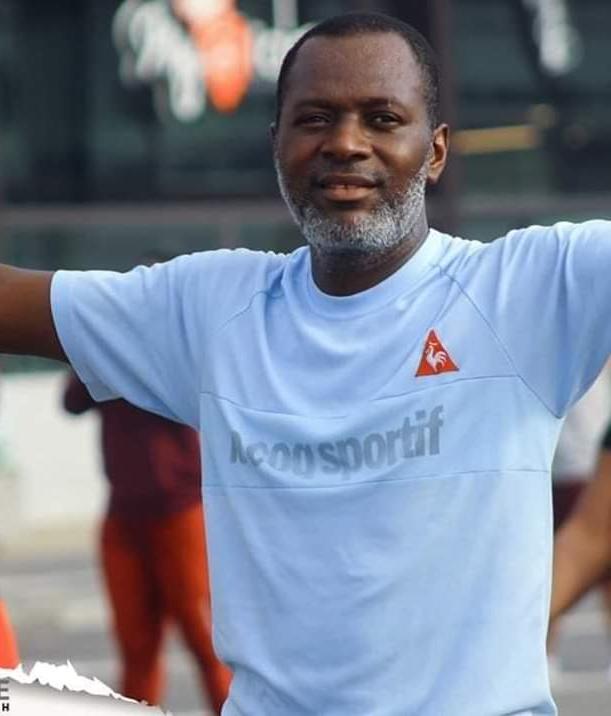
I was born and raised in the town of Attécoubé. It is one of the popular towns of the city of Abidjan.
Today, I am a physical education and sports inspector in public administration. I also teach EPS courses in private and public schools. I supervise students in the practice of badminton.
Early Experiences
I first saw badminton on television around 2012-2013. But my first experience was in 2013 from the current national technical director. He offered me a role with the federation to manage badminton school practice.
I admit that when I saw international competitions on TV, I thought I was never going to be able to practice this sport let alone teach it. I found it so difficult.
Today badminton and me are a relationship of love and passion. Today I see things differently.
Memorable Event
All the international competitions organised in Ivory Coast are events that will never be forgotten. We meet such wonderful people that ultimately we form a family.
In 2017 we had to organise the Abidjan Open. The day before the opening ceremony, heavy rain and wind had hit the city. The wind and rain had destroyed part of our arena.
We were so discouraged that we were even ashamed of approaching Sahir Edoo, the General Secretary of the BCA. When we explained our situation to him, he said: “You don’t have to be disappointed, it’s not your fault. Besides, we’ve known worse elsewhere.”
These words gave us strength. So, we redid the arena and the competition went well.
What Makes Badminton Different
Badminton is different from other sports in its arena and playing equipment. Also, mixed doubles competitions are opportunities for male and female players to play together.
Being able to combine technical, tactical and physical effort on such a small area requires skill and focus.
Experiences with the Badminton Community
At each educational or recreational meeting, I always take my racket and shuttlecocks. Out of curiosity, my colleagues will want to learn to play. Once they try it, they will not want to hand over the racket. I take this opportunity to invite them to a badminton match. Usually, they will request training.
With the students, at the start of the school year, I use the recreation period to demonstrate the game. All the students who participate and who want to learn come to the training sessions.
Once a month, with the Ivoirian Badminton Federation, we organise competitions in schools in various regions. At the end of the school year we organise the Final School Competition that brings together winners from different regions.

Learnings from Shuttle Time
In Côte d’Ivoire, Shuttle Time was an innovative project. Having already developed training documents, and having a cell that takes care of learning and monitoring at school, Shuttle Time has attracted the attention of other sports federations.
I was approached by friends and members of other sports federations to explain the Shuttle Time model.
The Shuttle Time project has given back a place to early intervention. I learned that basic training is essential to prepare the champions of tomorrow.
The sooner we train the players, the more efficient they will be later. The school is the crucible, the breeding ground.







